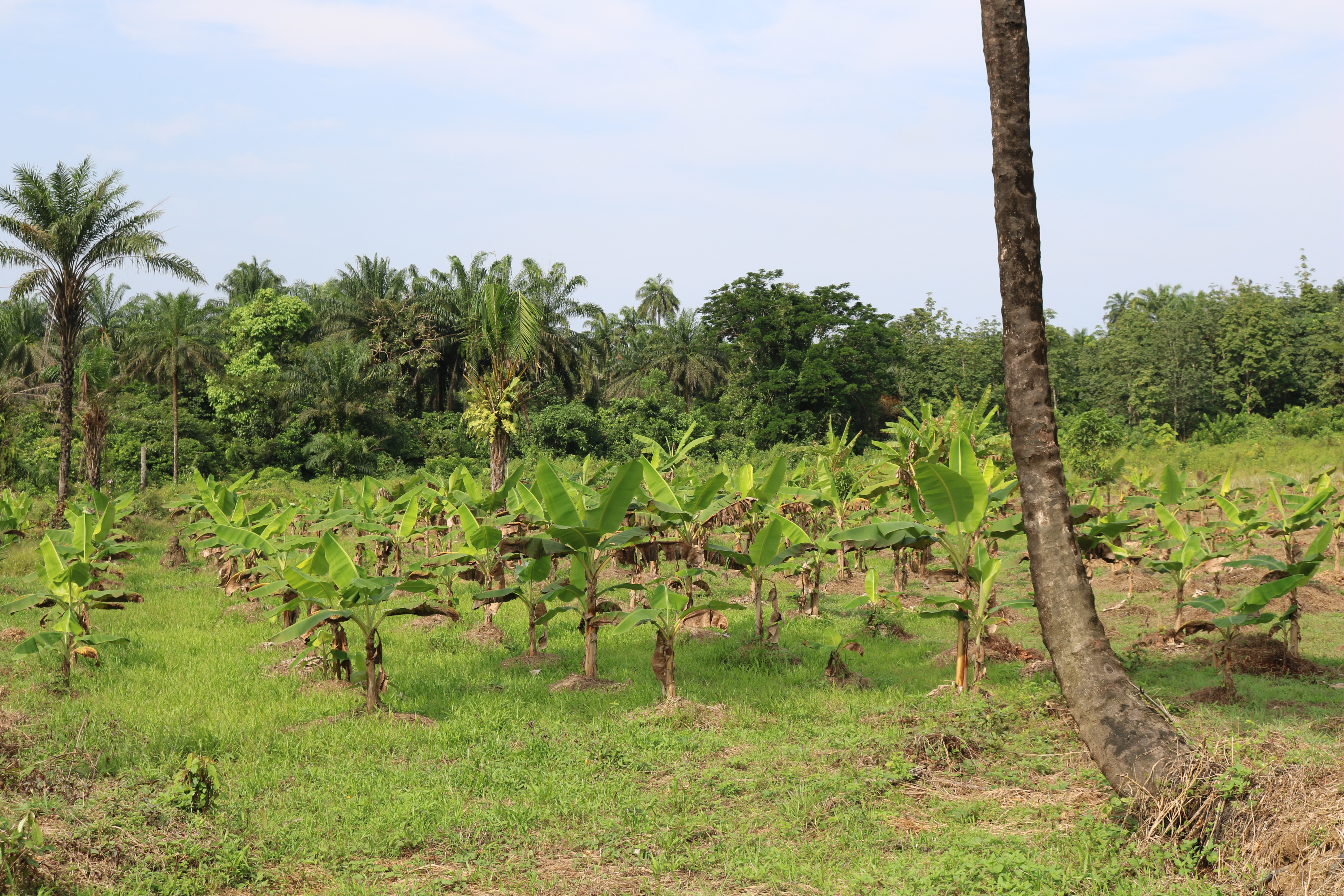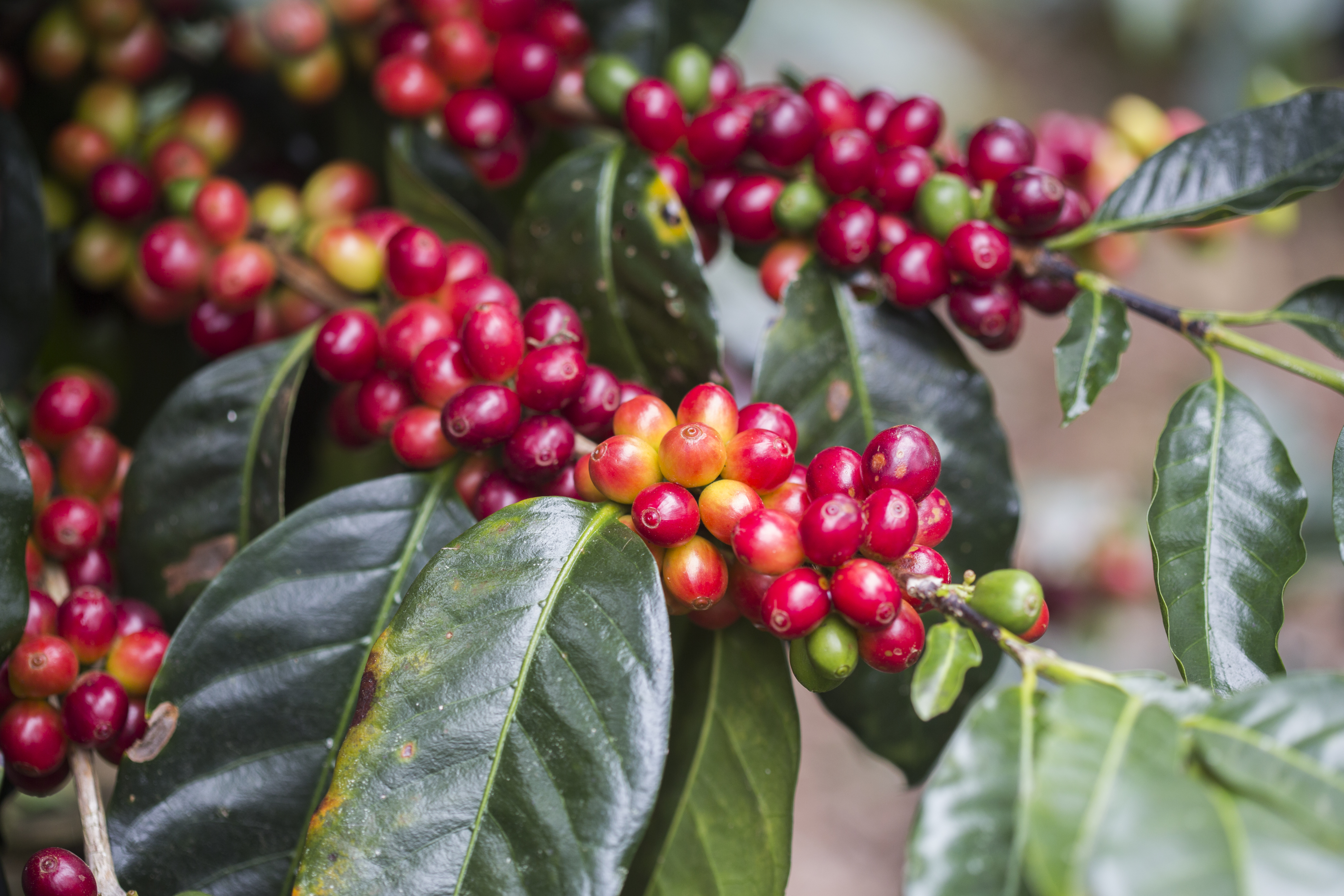
Global Dialogues
The Forests and Agricultural Commodities Dialogues: Addressing the Drivers of Deforestation
Signed in 2014, the New York Declaration on Forests (NYDF) is a partnership of governments, multinational companies, Indigenous Peoples, and civil society who strive to end natural forest loss and restore 350 million hectares of degraded landscapes and forestlands by 2030.
After a refresh process, in 2022 the NYDF Global Platform is focusing on supporting NYDF endorsers as they strive to achieve the ambitious NYDF Goals.
Goal 2 focuses on eliminating deforestation from the production of agricultural commodities well before 2030, recognizing that many companies have even more ambitious targets. As the primary drivers of deforestation globally continue to be agriculture and cattle ranching, Goal 2 is critical for achieving the 2030 forest targets.
UNDP Food Systems team in cooperation with the UNDP Climate & Forest Team is developing a series of dialogues in Cote d’Ivoire and Liberia, two key countries in the West Africa region, which will identify how to accelerate progress on NYDF Goal 2 at the country level.
UNDP Food Systems will use its 10+ years’ experience in country dialogues to support governments and companies to accelerate a reduction in deforestation from agricultural commodities (e.g. the flagship initiative “From Commitment to Action (FC2A)” developed in Colombia, Peru and Ecuador), applying the newly published methodology on Effective Collaborative Action. Moreover, UNDP Food Systems will apply the innovative approaches of the UNDP Conscious Food Systems Alliance.
To learn more about UNDP’s activity related to the Forests and Agricultural Commodities Dialogues contact Greta Ellero, greta.ellero@undp.org

Palm trees in Liberia
Sector Transformation in Coffee Exporting Countries
Following the 2019 London Declaration on price levels, price volatility and the long-term sustainability of the coffee sector, the International Coffee Council requested the International Coffee Organization (ICO) to set up a Coffee Public-Private Task Force (CPPTF).
The aim of the CPPTF and its related Technical Workstreams (TWS), is to implement the ICC Resolution 465 and the London Declaration. The TWS is consisting of a wider group of stakeholders, working together to support the work of the CPPTF in the relevant thematic areas identified in Resolution 465 and in the London Declaration. The TWS are complementary and cover different aspects of coffee sustainability, including living and prosperous income, market transparency, market policies, institutions and international funding mechanisms, resilient coffee landscapes and the inclusion of women and youth.
The output of the different TWS will be used to further develop the CPPTF strategy, and provide input into the evolving CPPTF Roadmap, containing time-bound actions and commitments the realization of the CPPTF long-term vision of a sustainable and prosperous future for coffee producers and the sector as a whole.
UNDP, together with the Global Coffee Platform is supporting the CPPTF process with the purpose of contributing to the sustainability of the global coffee sector by helping realize the vision of the ICO CPPTF and its road map for multi-stakeholder action. As part of this support, UNDP and the Global Coffee Platform have been tasked to;
- Facilitate and coordinate part of the Task Force TWS 3 on Market Policies, Institutions and International Funding Mechanisms. The TWS 3 was tasked to address institutional and policy barriers to importing and exporting countries and the need for funding mechanisms to increase investment in the sector. The goal of the TWS is to catalyze ‘quick win’ interventions with Task Force members and foster systemic change in producer countries to increase the competitiveness, sustainability and resilience of their coffee sector;
- Support the ICO in facilitating and managing the CPPTF process by adopting best practices for multi-stakeholder processes; and
- Prepare pilot interventions to facilitate national systemic change by engaging country representatives and creating supporting coalitions of public and private stakeholders.
Exporting countries with a majority of smallholder farmers face enormous challenges to transform their coffee sectors. These challenges, including increasing productivity, enhance quality, improve access to finance, address land tenure issues and diversify coffee production, are often too large and complex for governments, farmers, or companies to address on their own. Several countries are working on strengthening institutional capacity, adopting effective policies and building systems for farmer support and research. Solutions require shared vision and collaborative action among all stakeholders, yet too often stakeholders still work in isolation.
TWS 3 Multi-stakeholder Forum on Sector Transformation in Coffee Exporting Countries
In 2021 UNDP and the Global Coffee Platform facilitated a Multi-stakeholder Forum – Exporting Countries as part of TWS 3. Entitled Sector Transformation in Coffee Exporting Countries’, the Multi-stakeholder forum focused on the creation or strengthening of multi-stakeholder platforms to foster collaborative action and an enabling environment for change within the coffee sectors in exporting countries to meet the challenges of the future. The TWS examined proven solutions, shared lessons and defined how to replicate and scale up solutions and innovations. It explored how to organize transformative action through national multi-stakeholder dialogue processes and national coffee sustainability plans, in partnership with companies, donors and other international players who can support change processes in different ways.
The key insights and lessons learnt from the TWS 3 Multi-stakeholder Forum on Sector Transformation in Coffee Exporting Countries has been summarized in this document.
To learn more about UNDP’s work with ICO contact Melissa Salazar, Food Systems Programme Coordination Associate Officer, at melissa.salazar@undp.org

Coffee Beans
Previous Dialogues
FACT Dialogue: Galvanising and Catalysing Public and Private Solutions
The Forest, Agriculture and Commodity Trade (FACT) Dialogue is an initiative launched by COP26 Presidency and the Tropical Forest Alliance aspiring to agree on principles for collaborative action, produce a shared roadmap on sustainable land use and international trade, and to take action now to protect forests while promoting development and trade.
Convened and facilitated by the Tropical Forest Alliance, the Multi- stakeholder Consultations formed a key part of the FACT Dialogue, ensuring all relevant parties have a voice and a space to contribute. Effective collaborative action, based on multi-stakeholder processes, are a key contribution from UNDP and its Green Commodities Programme.
UNDP’s Food Systems practice co-led together with TFA (with Efeca) the stakeholder group on Trade and Market Development by co-organizing a number of virtual multi-stakeholder sessions to provide stakeholder input into government-led national roadmaps to achieve deforestation free agriculture and commit to them at COP26.
In November 2021, at COP26 in Glasgow, a Joint Statement of support of the FACT Dialogue indicative roadmap of actions was launched as the outcome of the process, endorsed by 28 key producer and consumer countries. Glasgow ultimately served as the first key milestone for the FACT process to galvanise and catalyse public and private solutions to advance the agenda.
To learn more about UNDP’s work on FACT contact Charles O'Malley, charles.omalley@undp.org
Forest in Ghana

 Locations
Locations